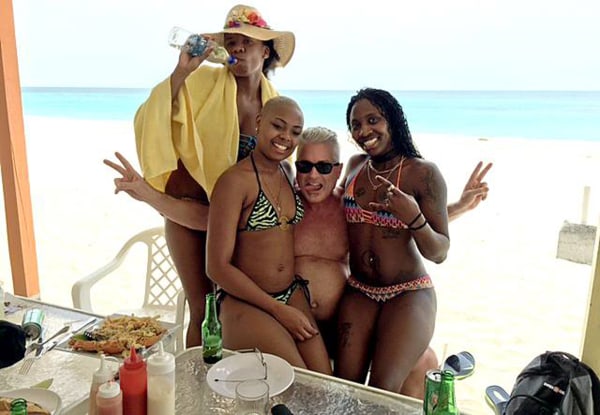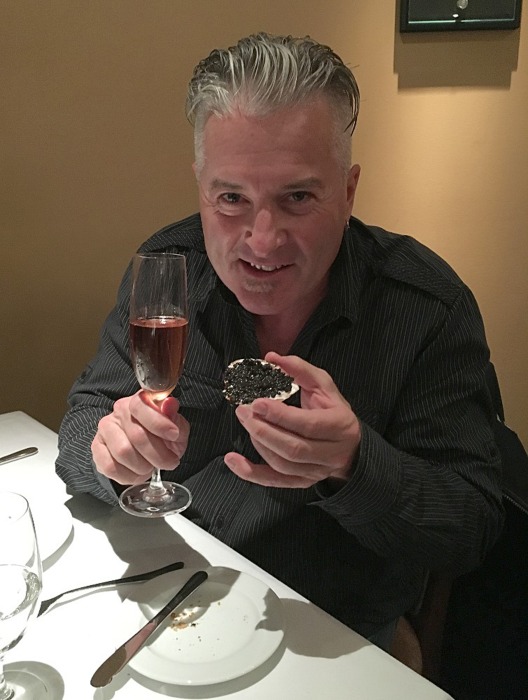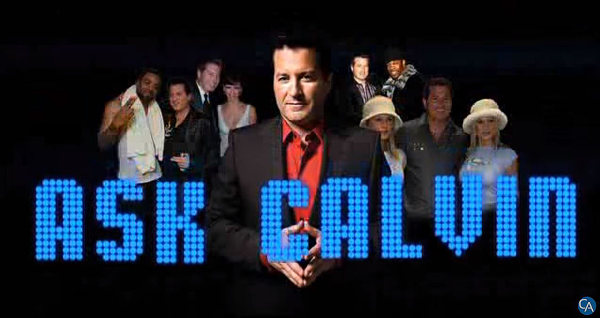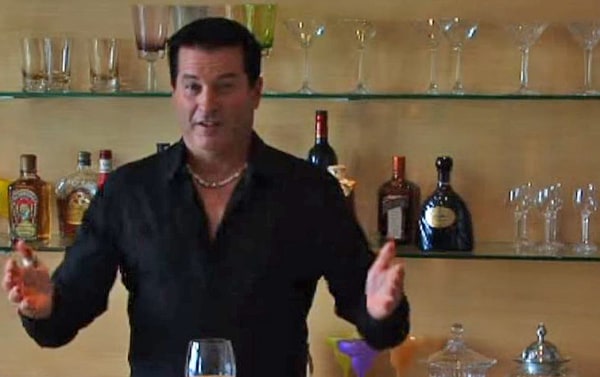Panama Papers: On the Run with Fugitive Gambling Czar Calvin Ayre
has learned that the Panama Papers
expose some of the secret financial dealings of one of America's most
wanted fugitives -- a flamboyant Internet gambling tycoon who has used a
web of offshore companies to stay one step ahead of authorities while
thumbing his nose at them, flaunting his luxe lifestyle and hiding
millions of dollars in illicit loot.
U.S. authorities have been investigating Calvin
Edward Ayre since at least 2003, as the relentlessly self-promotional
playboy built his Bodog.com website into one of the world's biggest,
most high-profile gambling and sports betting empires. 
Click Here to Search the ICIJ's Database
He is always surrounded by fawning women in bikinis, servants offering champagne and caviar, and has armed bodyguards and bulletproof limos at the ready, at least according to his own torrent of promotional videos, news releases and social media that tout his "Play Hard" lifestyle.
"Long Weekend, Antigua Style"
In 2012, Ayre achieved a different kind of notoriety when the U.S. government indicted him and three alleged associates on charges of conspiracy to launder money and illegal gambling, since most on-line gaming is illegal in the U.S. and a huge chunk of Bodog's customers were American. Suddenly, there was a new photo of Ayre on-line, as one of the Department of Homeland Security's 10 Most Wanted fugitives.Four years later, Ayre, 54, is still eluding his pursuers from the Justice Department and the IRS, moving himself and, authorities believe, large sums of ill-gotten gains, from one exotic tax haven to another - and documenting his travels on social media.
"Long weekend, Antigua style," he wrote in one beach-side May 2 Facebook post with a winking smiley face emoji, two bikinied and beer-drinking women on his lap, his tongue thrust out and both hands raised with the two-finger victory salute. "Opted for some extra leg room on the flight home," he said on another post last month, with photos of a private jet with red carpet rolled out, and Ayre seated with another beauty on his lap.

What they will find is a lively assortment of con artists, scammers and alleged criminals like Ayre who have had accounts at the now-notorious Panamanian law Mossack Fonseca while allegedly engaging in nefarious activities in the U.S.
A review of the law firm's internal files by the International Consortium of Investigative Journalists and other media partners, including NBC News, has identified companies tied to at least 36 Americans accused of fraud or other serious financial misconduct. Some have been convicted of fraud or other crimes, while others have been sued in civil cases launched by securities regulators or private plaintiffs.
Authorities have put many of the perpetrators out of commission. Some are in prison, or already out after serving their time. Others, like Ayre, are still in the wind, though unlike him they aren't sending virtual postcards to their pursuers via Facebook.
Over the years, the feds believe they have come close to catching Ayre on several occasions. They have even pursued a negotiated settlement with his lawyer, since Ayre is a Canadian citizen and the Canadian government has made it clear that it won't extradite him, according to a U.S. law enforcement official familiar with the long-running investigation. A Canadian law enforcement official told NBC News that per government policy, she could not discuss any ongoing investigation into a Canadian citizen including whether authorities have received or can act on a request for arrest or extradition.
Authorities also believe that Ayre and his associates have successfully used layers of offshore companies to hide potentially hundreds of millions of dollars in illicit earnings from them. They are still trying to get their hands on that loot, on top of the $68 million they say they've already seized.
And they believe that information from the massive trove of leaked offshore company documents known as the Panama Papers can help them accomplish that. In all, a still-unidentified person obtained 11.5 million documents that comprise the entire client files of one of the world's largest "offshoring" companies - the Panamanian law firm Mossack Fonseca - and leaked them to the German newspaper Süddeutsche Zeitung, which in turn shared them with ICIJ.

But authorities confirmed that they were not aware of another offshore company that Ayre created in the tax haven of Tortola in the British Virgin Islands, and controlled from 2007 to early 2013. They believe that company and others revealed by the Panama Papers could help them connect the dots between Ayre and potentially dozens of other associates as he expanded his gambling, betting and alleged money-laundering operations to the Caribbean, Europe and Asia and even a Canadian Indian reservation a short drive from the U.S. border.
"Let's just say we are very eager to see what's in the documents," the U.S. law enforcement official said, speaking on the condition of anonymity because of the ongoing investigation. "Any information that would help us … locate accounts, or funds or investments of any kind, is something (authorities) would be interested in."
"When you look back at the files, you see that [the U.S.] seized a lot of money," the official said. Asked if he believed Ayre and his associates had stashed significantly more money that is still out there, he said, "Yes."
NBC's research suggests that the amount of money could be substantial based on how much money Bodog.com was making from Americans betting on everything from sporting events to card games and even U.S. elections.
$24 Billion in Bets
Ayre himself, always eager to stay in the public limelight, boasted to reporters that his personal net profit was about $55 million just in 2005 alone, based on $214 million in revenue that Bodog.com took in that year. The next year, when Forbes put Ayre on the cover of its annual "Billionaires" edition, he boasted of even bigger earnings. He said Bodog's business was tripling in volume every year, and that he wasn't paying personal or corporate U.S. income tax on any of it.By 2007, as online gambling exploded in popularity in the United States, Ayre stated that Bodog handled almost $24 billion in bets and earned $640 million in revenues, which would mean $160 million in profits based on earlier ratios. He declined to say how much of that was from U.S. bettors. He also boasted that he'd begun snapping up other online gambling-related companies at fire sale prices, including $9 million for a U.S.-focused business, Betcorp. And Ayre had expanded the business into Bodog Entertainment, adding a TV unit, music label, conferences and contests and even a charitable foundation.
The documents shared with NBC News show that many of those individuals in the Panama Papers with a U.S. connection have been accused, indicted or convicted of various kinds of fraud or serious financial misconduct. The documents open a window on how some of these individuals used offshore entities to engage in, or hide a variety of criminal activities, while others used them to move money around clandestinely.
The documents also contain information about how at least two other significant operators in the online gambling world were using offshore companies, although -- as in Ayre's case -- they do not suggest any kind of illegal or improper activity.

Efforts to reach both men or lawyers for them were unsuccessful.
In his manifesto last Friday, the leaker said one major reason that he or she leaked the Panama Papers was because so much of the offshore activity "is legal and allowed in this system. What is allowed is indeed scandalous and must be changed."
The ICIJ has said it has no plans to share the files with law enforcement agencies, providing access to the documents only to specially selected media organizations around the world so they can investigate abuses of offshore entities in their home countries.
But in a much anticipated move, ICIJ today is publicly uploading a searchable version of the Panama Papers database. It will not include the underlying documentation reviewed by NBC News and other ICIJ partners, including company records and emails and other communications. But it will contain basic information such as the secret owners of the more than 214,000 offshore entities found in Mossack Fonseca's files for investigators, victims, jilted associates and family members and others to search.
And in his manifesto, the leaker announced that he "would be willing to cooperate with law enforcement to the extent that I am able."
"In the end, thousands of prosecutions could stem from the Panama Papers," the leaker said, "if only law enforcement could access and evaluate the actual documents."
Reached through his U.S. lawyer Barry Boss, Ayre had no comment about his dealings with Mossack Fonseca, or the cat and mouse game he has played with the feds all these years. "I think we are going to decline your request for an interview at this time," Boss told NBC News.